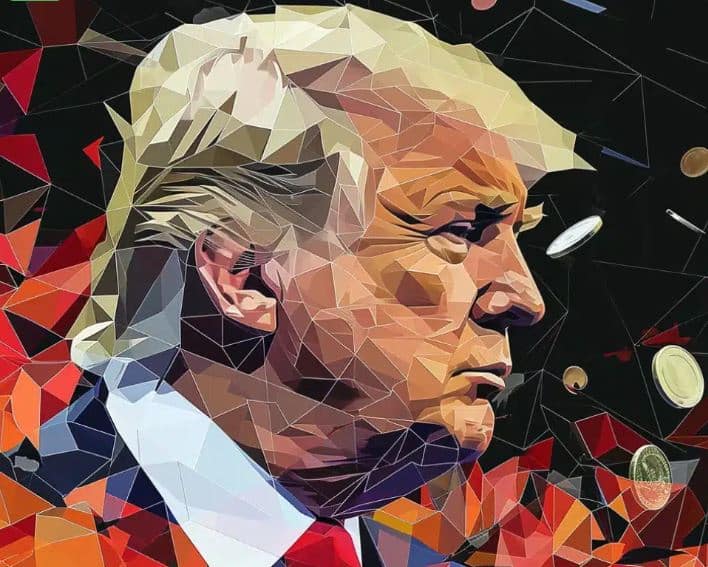Donald Trump, the former U.S. president known for his outspoken nature, has recently directed his attention towards the cryptocurrency sector, marking a notable shift in his previous skepticism. While Trump has historically criticized digital assets like Bitcoin (BTC), his recent actions suggest a more complex stance, with a surprising embrace of non-fungible tokens (NFTs) and acknowledgment of Bitcoin’s growing popularity.
Initial Criticism of Cryptocurrencies
In 2019, Trump publicly voiced skepticism about Bitcoin and other cryptocurrencies, describing them as lacking intrinsic value and being “based on thin air.” His criticism intensified leading up to the 2020 presidential election, where he emphasized the volatility of digital assets and reaffirmed his faith in the stability of the U.S. dollar.
Regulatory Plans and Democratic Opposition
During his administration, Trump’s plans to tighten cryptocurrency regulations, proposed by agencies like the Financial Crimes Enforcement Network (FinCEN), were put on hold following Joe Biden’s inauguration. Meanwhile, some Democratic Party members continued to advocate for stricter regulations, sparking concerns within the cryptocurrency community.
Embracing Non-Fungible Tokens (NFTs)
Despite his earlier skepticism, Trump ventured into the NFT market in early 2022 with the launch of his POTUS TRUMP NFT collection, featuring digital artworks depicting himself. This move proved lucrative, potentially earning Trump significant sums from the collection’s sales. Subsequent NFT releases, including the Mugshot Edition, further solidified Trump’s presence in the digital collectibles space.
Political Implications and Speculations
Analysts suggest that Trump’s NFT ventures could pave the way for using NFTs as a political financing tool, expanding their utility beyond art and entertainment. While some former presidential candidates have expressed support for cryptocurrency technology, Trump’s embrace of digital assets may be driven by political motives to appeal to a broader voter base, particularly among younger demographics.
Strategic Considerations and Generational Shift
Trump’s newfound support for Bitcoin comes amid projections indicating that Generation Z and millennials will constitute a significant portion of voters in future elections. These demographics exhibit less trust in traditional institutions and are more inclined toward emerging technologies like cryptocurrencies. However, some observers view Trump’s embrace of digital assets as a strategic move to capitalize on current market trends and appeal to crypto enthusiasts.
In conclusion, Donald Trump’s evolving stance on cryptocurrency reflects a broader shift in political dynamics and generational preferences. While his past criticisms may have been rooted in skepticism, his recent embrace of digital assets underscores the increasing influence of cryptocurrency in both financial and political spheres. Whether driven by genuine belief or strategic calculation, Trump’s engagement with cryptocurrencies signals a significant development in the evolving landscape of digital finance and politics.












